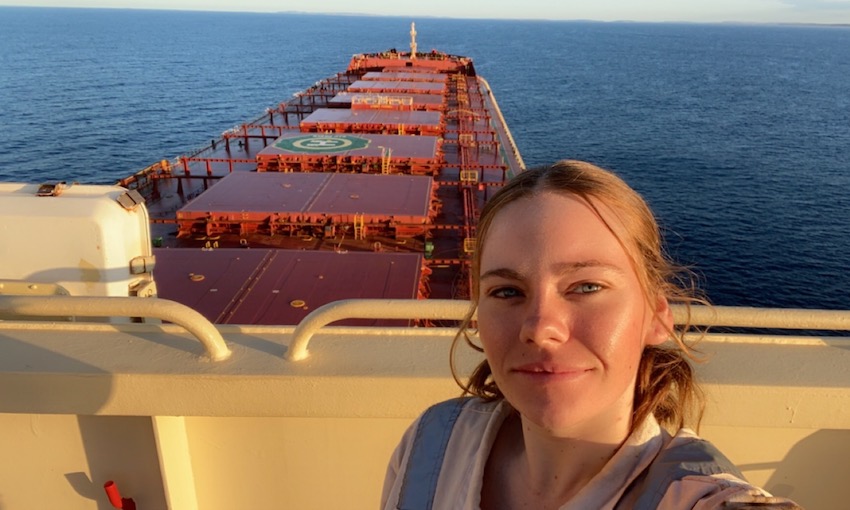Jeri Ingleton is a marine cadet with Pilbara Ports Authority. DCN interviewed her as part of its coverage of the IMO’s International Day for Women in Maritime.
First of all, could you briefly tell us about yourself, your role and what it entails?
I’m a cadet with Pilbara Ports Authority. I’m 12 months into my 18 months at sea; I’ve got one more contract to complete as part of my cadetship and then I’ll go to TAFE or college in Tasmania or Perth. My goal is to become a marine pilot, not only because of the money, but because of the sense of pressure I got on the first vessel I worked on. To be able to con a vessel of up to 300 metres or more, in my mind, is incredible. And to do that through the Great Barrier Reef or anywhere else in the world and meet different people on board would be an amazing experience.
What brought you into the industry?
I graduated high school in October 2020 and started looking for apprenticeships with companies like Woodside. My mum texted me one day and said, “Hey, Pilbara Ports Authority is doing this cadetship – why don’t you try and apply?” I got the position, prepared my documents and went down south for survival training, which is an amazing experience. I learned so much. And then I went out to sea to begin my journey, which is totally amazing and scary at the same time.
Could you tell us about some of the barriers you have encountered in the industry and how you overcame them?
The first vessel I was on, I was the only woman on board. Everyone was lovely, but when it came to the more physical work, a lot of the men on board would bump in and say, “Whoa, I can do it. You don’t have to do this kind of thing.” But see, I’m one of those women who wants to do the job. I’m here to learn and prove to myself and all the people around me that I can do the job. That’s one of the reasons why I’m here. Language is another barrier in international crews, especially when we have to use VHFs. I’m really interested in learning the languages they speak, like Hindi and Tagalog, where it can help others as well.
What has been the biggest positive change for women in the industry you’ve seen?
While in drydock in Qingdao, China, there were no women in sight for the first couple of days. There were agents, but you wouldn’t see a woman on the ship at all, helping the men. But a couple of days went past, and I saw a woman being a supervisor for the scaffolding. And then the next couple of days passed, and there were women actually doing the scaffolding. It just built and built. All the stevedores and all the helpers coming on board to help rebuild the ship, every time they saw me their faces would just light up. As there are more women coming into the industry, I think more women will see that and think, “Wow, she can actually work like that.”
What needs to change to encourage more women in the workforce?
Honestly, I don’t think the industry as such needs to be changed. I think it’s more about confidence and encouragement and learning about what women actually have to go through. We have to work harder to prove ourselves. There might also be people who see there’s a woman on board and treat her like a male, which some women do want. But for some, I think it’s confronting to be pushed into things or out of things, just because we are women. I think it’s all about the thoughts that you bring to yourself and the energy you bring into the industry. I don’t necessarily think the industry could change – I think the awareness and the confidence you bring into it is that should change.
What does the International Day for Women in Maritime mean to you?
I think it’s amazing, because every year we celebrate it, we’ll know how many women are in the industry at the time. I think it’ll open our eyes up to see how large it’s becoming. And I think it’s a great thing for the newcomers that join to think, “Wow, I look up to this woman,” which is a positive outcome. And women are reaching out and DMing each other – I follow the Facebook pages for women in the industry and every day I look through and think, how cool is her job? She looks great. I’m so proud.

